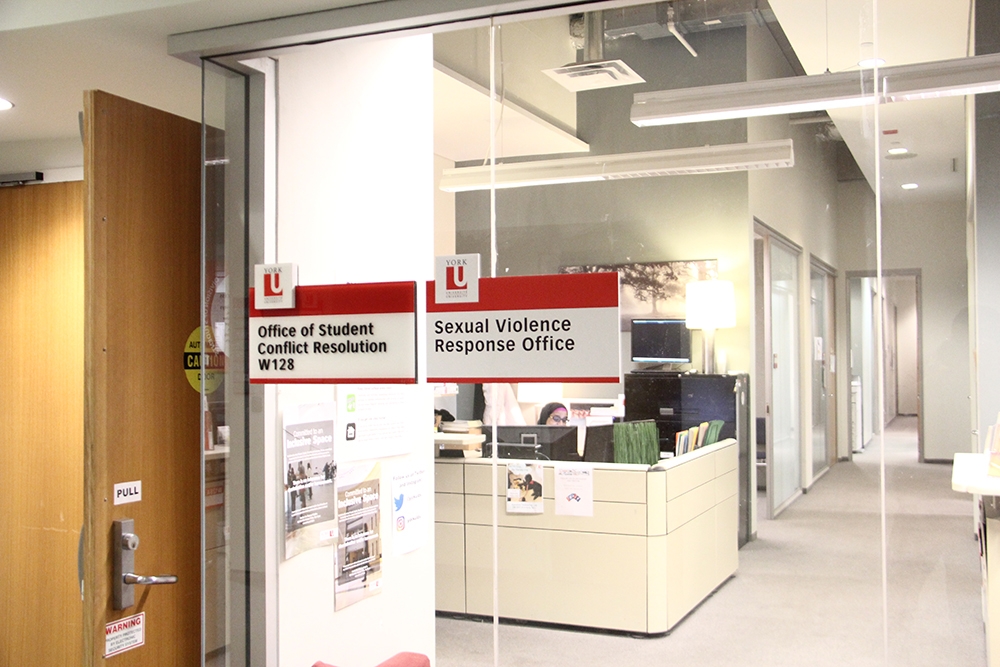Victoria Goldberg | Editor-in-Chief
Featured image: The newly established Sexual Violence Response Office offers 24/7 support for survivors of sexual assaults. | Amir Yazdanparast
A new Sexual Violence Policy has been released following what York claims was an extensive consultation process.
The new policy replaces the 2015 Policy on Sexual Assault Awareness, Prevention and Response, as well as the interim guidelines released this past September.
“The new sexual violence policy and procedures represent an important step forward—with a dedicated office and resources, a survivor-centric approach and extensive education and awareness training programs,” said Rhonda Lenton, vice-president academic and provost.
The 25-page policy, as approved by the Board of Governors, provides extensive definitions on rape culture, sexual assault and sexual harassment. It recognizes the magnitude of sexual violence, and focuses on providing support and accommodations to individuals affected by sexual violence.
The policy comes with the establishment of the Sexual Violence Response Office, located in the Bennett Centre for Student Services, which offers 24/7 support via phone. The policy mandates that a list of supports and services are available publicly via its website, and extends the services to students, staff and community members alike.
Training on the content of the policy as well as processes and initiatives to combat sexual violence are expected to begin in early 2017.
The policy comes after Ontario’s passing of Bill 132, titled the Sexual Violence and Harassment Action Plan Act (Supporting Survivors and Challenging Sexual Violence and Harassment), as well as a consultation process that included more than 30 meetings and three open sessions.
Keele and Glendon campus communities were asked to provide feedback during two open forums hosted in late November, as well as through confidential submissions online.
Mandi Gray, a PhD student who filed a human rights complaint with York in June of 2015 due to the university’s lack of policies regarding sexual violence at the time, believes that the new policy will encourage survivors to come forward and seek help due to the wording, but remains wary of its effectiveness.
“Do I anticipate that more students are going to be reporting sexual assaults? Absolutely— because there’s all this pretty language of ‘survivor-centric.’ But when you look between the lines, there’s really no substance there,” claims Gray.
The student group Silence is Violence, co-founded by Gray in 2015, was one of the few campus groups to openly submit recommendations to the interim guidelines. According to Gray, Silence is Violence went through the guidelines line by line, citing problematic areas and providing recommendations. In November, they circulated a petition, asking for community support for the recommendations they were to submit to York.
Gray expresses her disappointment in both the lack of support from student groups, as well as the lack of changes in the new policy.
“Our consultation recommendations were not taken seriously. I did not anticipate that they would have been,” adds Gray.
“Our new sexual violence policy, which is aimed at providing supports, education and raising awareness for all community members, reflects our commitment to create a culture of respect and to proactively develop solutions that address violence, social injustice and inequity in all forms,” said Gary Brewer, vice-president finance and administration.
York Media was not available for comment at the time of publishing.



